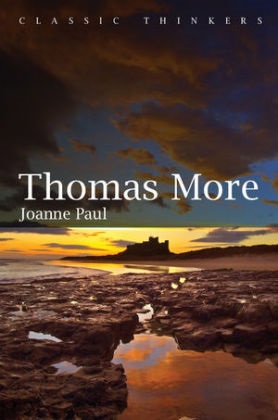Read more
Thomas More remains one of the most enigmatic thinkers in history, due in large part to the enduring mysteries surrounding his best-known work, Utopia. He has been variously thought of as a reformer and a conservative, a civic humanist and a devout Christian, a proto-communist and a monarchical absolutist. His work spans contemporary disciplines from history to politics to literature, and his ideas have variously been taken up by seventeenth-century reformers and nineteenth-century communists.
Through a comprehensive treatment of More's writing, from his earliest poetry to his reflections on suffering in the Tower of London, Joanne Paul engages with both the rich variety and some of the fundamental consistencies that run throughout More's works. In particular, Paul highlights More's concern with the destruction of what is held 'in common', whether it be in the commonwealth or in the body of the church. In so doing, she re-establishes More's place in the history of political thought, tracing the reception of his ideas to the present day.
Paul's book serves as an essential foundation for any student encountering More's writing for the first time, as well as providing an innovative reconsideration of the place of his works in the history of ideas.
List of contents
Preface vi
Abbreviations ix
Key Dates xi
Introduction: The Thought of Thomas More 1
1 Early Life, Education and Poetry 15
2
Utopia and 'Common Things' 29
3
Richard III and the Stage Play of Politics 60
4 The Common Corps of Christendom 83
5 Influence 116
Conclusion 141
Notes 146
References 158
Recommended Reading 169
Index 174
About the author
Joanne Paul is Lecturer in Early Modern History at the University of Sussex.
Summary
Thomas More remains one of the most enigmatic thinkers in history, due in large part to the enduring mysteries surrounding his best-known work, Utopia. He has been variously thought of as a reformer and a conservative, a civic humanist and a devout Christian, a proto-communist and a monarchical absolutist.
Report
"For too long, there have been multiple Mores: Thomas More - the 'man for all seasons' - has also seemed to be a man of many faces: More's identities as a statesman, humanist, and saint have seemed riven from each other and bafflingly incompatible. In this brilliant, lucid, and pithy account, Joanne Paul reunites More with himself by identifying the central idea that animated his thought and action. This is an original and illuminating work that should be compulsory for any reader of Utopia."-Suzannah Lipscomb, New College of the Humanities
"A well-organized introduction to Thomas More's body of writing, some published only posthumously, which deftly introduces a general university-level reader to his written corpus."-Bethany Wiggin, University of Pennsylvania
"Fascinating...Paul shows an impressive mastery of the assorted, disparate aspects of More's work."- Spiked Review

